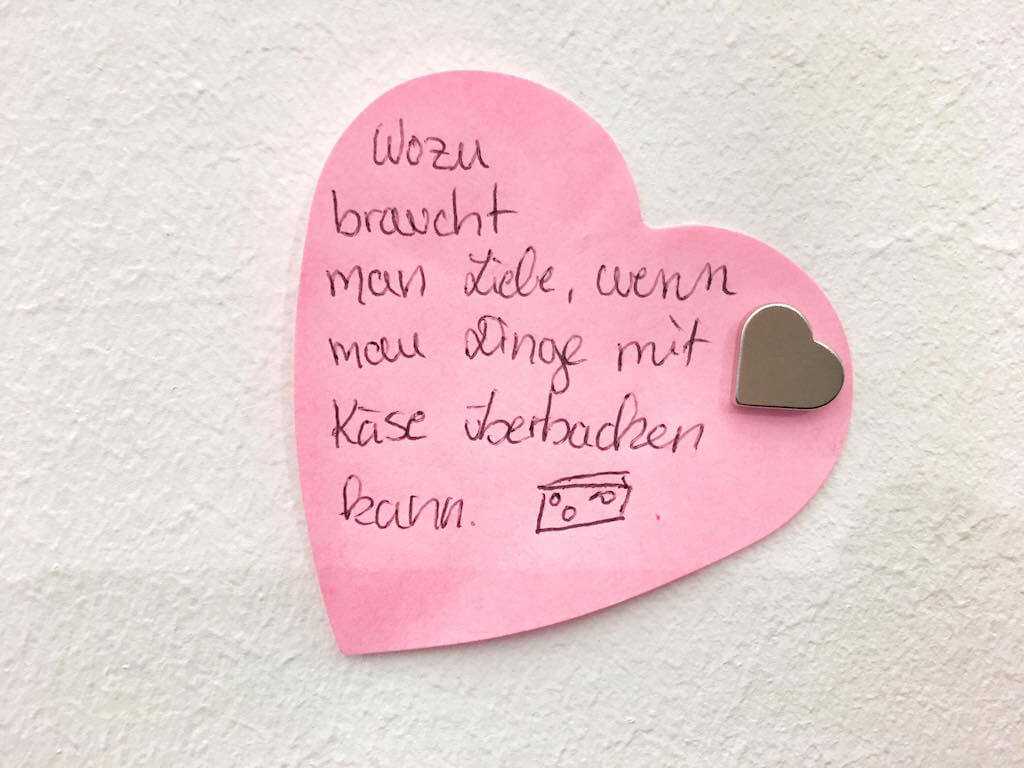Self-hugging or the inner scale

Self-hugging is good in moderation. Anyone who overdoes it loses sight of the needs of others.
We like to embrace ourselves. In doing so, we elevate our thinking, feeling and acting as a standard for others. This becomes an internal law by which we measure the behavior of others. Our strengths are our fellow human beings and our weaknesses disturb us at the other one. Psychologists call this tendency self-hugging and they are not even aware of most people.
Bring something crisp to the point? Everyone can do this. Understand what the colleague needs and how best to support him? It’s nothing special. Thinking a thing down to the last detail? No problem. Let’s do it all. Order? Of course. Of course? Not at all. These abilities are not codified in any genetic code but belong to a person’s peculiarities.
Conversely, the same applies. “Of course, I let others talk and listen well,” most people say of themselves. When it comes to light, there are very few who actually master this art. Not for nothing is there an app that counts how often we interrupt other people. Organizing something and keeping an eye on everything and being alert at all times does not sound like much. But even this ability was not laid in the cradle of many people. “Oh, I forgot that. Can happen, “is often the succinct answer, if it strikes. Or “Is that really so important?” We are easily annoyed when it comes to our incompetence. And we are in good company with that. We avoid unpleasant situations, and these are our teachers. Whenever something does not work out as we imagine it, we can learn something about ourselves and our behavior and develop ourselves further.
On your own doorstep sweep
The list of own failures is long. We let others wait, even though we have promised to be there on time. We do not feel like looking for a parking space and buying bread, although we promised to bring some. We empty the car and silently put it in front of the door. We forget that we have agreed to take care of the children and come home too late. These are all starting points for self-development and indeed, before we turn on the high-pressure cleaner on the front doors of other people.
We prefer that much more than turning at our own door. We usually perceive our own farm as well-kept as that of our counterpart. And we also overlook the leaves that the autumn storm blew in. But if there are three leaflets next door, then criticism is very easy for us and we already have our fingers on the power button.
The beauty of this self-deception is that we can not consciously perceive it. We only see what we want to see and simply ignore everything else. Not bad at all. Taking a serious look at yourself opens the view to others. We then take the focus away from the three sheets and capture quite different personality traits and competencies. People quickly realize that we are actually interested in them, or whether in truth we only care about ourselves and absorb everything that benefits us most. The fine line between professionally necessary and actual interest has an emotionally direct effect.
Do not just hug yourself
It pays to occasionally review the yardstick we apply to other people’s actions, particularly to employees. Are these skills really self-evident and can I assume them? Maybe the other one has completely different abilities that I have not discovered yet, but which can be used profitably in practice?
For example, Maria is desperate about her colleague Sanka. From her point of view, she lacks any feeling for color, form and fit. If Sanka is to buy flowers for the reception, then she brings along “scrub”, which Maria has thrown directly into the bin. It also can not clean up the waiting room so that you feel comfortable in it. In addition, she loses herself even forgotten in one or the other magazines. And even with her outfit, Maria’s hair is on the up. Although she wears the prescribed work clothes, but under her white pants shine colorful Kätzchen-, Pünktchen- and Blümchenöckchen. A no-go for Maria. She just can not understand that you have so little feeling for yourself and for his environment. And she worries that the patients will feel the same way.
Now, Maria has the choice: Does she remain in self-hugging and gets upset about Sanka’s appearance and behavior? She can do that. It is doubtful whether it will succeed with discussions and advice to dissuade Sanka of their kind. Maria decides otherwise. She wants to watch Sanka closely and see how what she describes as incompetence works. Maybe it can even be a skill that is useful in practice.
Maria looks curiously at Sanka and tries not to put her own standard in the foreground. So she notices that Sanka gets through her slightly more colorful and slow way contact with patients who receive the very positive. These include older people, with whom she already talks in the waiting room and who feel extremely well belgeitet. More often she even brings a bottle of sparkling wine or chocolates: “For your nice helper. The ones with the pretty socks. “And children love Sanka, too. They stare at the little kittens on their knuckles and hold their hands after a while. Sanka can soothe any child and accompany them to the treatment chair. Treating a child with Sanka’s hand is much easier than having a mother. Often the children say that the mum can stay outside.
This new perception helps Mary to free herself from self-hugging and to absorb the other’s competences without evaluation. And in this case they can be used for common work. So instead of embracing herself, Maria manages to approach her employees. And the side effect is that Sanka, because she feels accepted, is not angry if her boss wants to get rid of criticism.
Leaving everyone in their own way and recognizing them appreciatively can open up completely new possibilities in cooperation. Sure, it’s good to hug yourself once, but when it comes to self-hugging, a practice or a lab is emotionally poor.
Related Posts
-

The analogue remains: the weddinger cassette store ergin
“I chose my films > The cassette shop Ergin – A Weddinger veteran The cassette store Ergin has been in Wedding for about 30 years in the same place…
-

Playground 1: twelve games in a great children’s app game collection
Playground 1: Twelve games in a great children’s app game collection – now also for Andro > XXL Kids Games Collection for iPad , iPhone + Android +…
-

Who is rosamunde pilcher? A portrait of the queen of love
Who was Rosamunde Pilcher?? Rosamunde Pilcher is dead. You may wonder why this post is worth a blog post, as it’s usually pop culture rather than…
-

Parent pride – from good parents
parents proud My parents read my blog posts. And they always find everything good, which they often tell me exuberantly. Sometimes I think that they…
